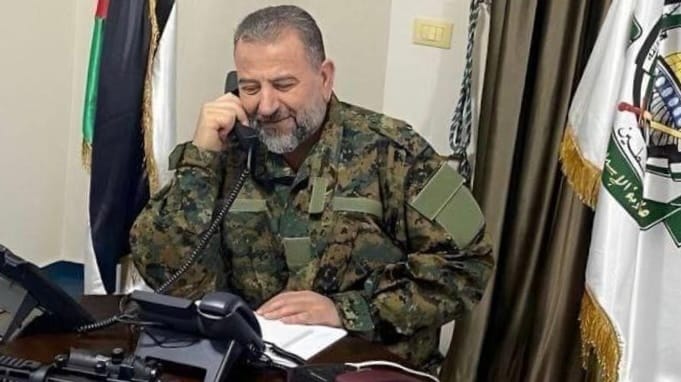Strategic Shift in Middle East: The Assassination of Hamas Deputy Leader Saleh al-Arouri
In a development that could significantly alter the dynamics of the Middle East conflict, Saleh al-Arouri, a senior official and deputy leader of the Palestinian group Hamas, was killed in an Israeli drone strike. The attack occurred in the southern suburb of Dahiyeh in Beirut, marking a notable escalation in

In a development that could significantly alter the dynamics of the Middle East conflict, Saleh al-Arouri, a senior official and deputy leader of the Palestinian group Hamas, was killed in an Israeli drone strike. The attack occurred in the southern suburb of Dahiyeh in Beirut, marking a notable escalation in the ongoing conflict between Israel and Hamas.
Saleh al-Arouri, known for his role as the commander of Hamas' militant operations in the West Bank, was among seven individuals who lost their lives in the blast. His assassination in Beirut, outside the traditional theater of the Israel-Palestine conflict, highlights the expanding reach and intensity of this enduring strife.
This event signals a potential shift in the conflict's trajectory, given al-Arouri's prominence within Hamas. His role in the organization made him a key figure in the group's strategic and military planning, and his death could have far-reaching implications for both Hamas and the broader conflict dynamics in the region.
As accusations point towards Israel for the bombing, this incident adds another layer to the complex and volatile relationship between Israel and Hamas. The repercussions of this strike could be significant, potentially leading to renewed tensions and a reevaluation of strategies on both sides.
The assassination of al-Arouri is a stark reminder of the ongoing volatility in the Middle East and the continuous challenges in achieving lasting peace in the region. It underscores the deep-rooted and multifaceted nature of the conflict, where actions often have far-reaching and unforeseen consequences. As the world reacts to this significant development, the focus remains on how this will impact the future course of the Israel-Hamas war and the broader regional stability.




